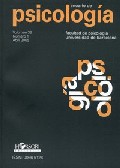The role of form in masked priming effects in cognate words
Abstract
Most theoretical proposals about the bilingual lexicon include representations at the levels of form (orthographic and phonological) and meaning (conceptual). The degree of shared representations across languages at either level has been a matter of dispute in recent times. A number of studies using different tasks and experimental paradigms have shown that the cognate status of translations is a relevant factor concerning the relationship between words across languages. Cognate translations are word pairs that share similar form and meaning across two languages (e.g. arbre-árbol), in contrast with so-called false friends (which are only form-related, such as fleca-fleco) and non-cognate translations (which only share their meanings, e.g. sorra-arena). In this article, we review a series of masked priming experiments across languages with competent Spanish-English and Catalan-Spanish bilinguals, and report a new masked priming experiment carried out with Catalan-Spanish bilinguals in which the degree of form overlap between cognate pairs was manipulated. The results of the experiment and the evidence reviewed suggest that form similarity by itself cannot account for the priming effects obtained with cognate words.Downloads
Published
2007-07-05
Issue
Section
Dossier: Forma y significado en el procesamiento del lenguaje (Coordinador: José Manuel Igoa)
License
The authors who publish in this journal agree to the following terms:
Authors transfer to the publisher all copyright for the full term of protection and for all the world.
The authors can post a copy of their articles in accordance with the policy of free access to the journal.


